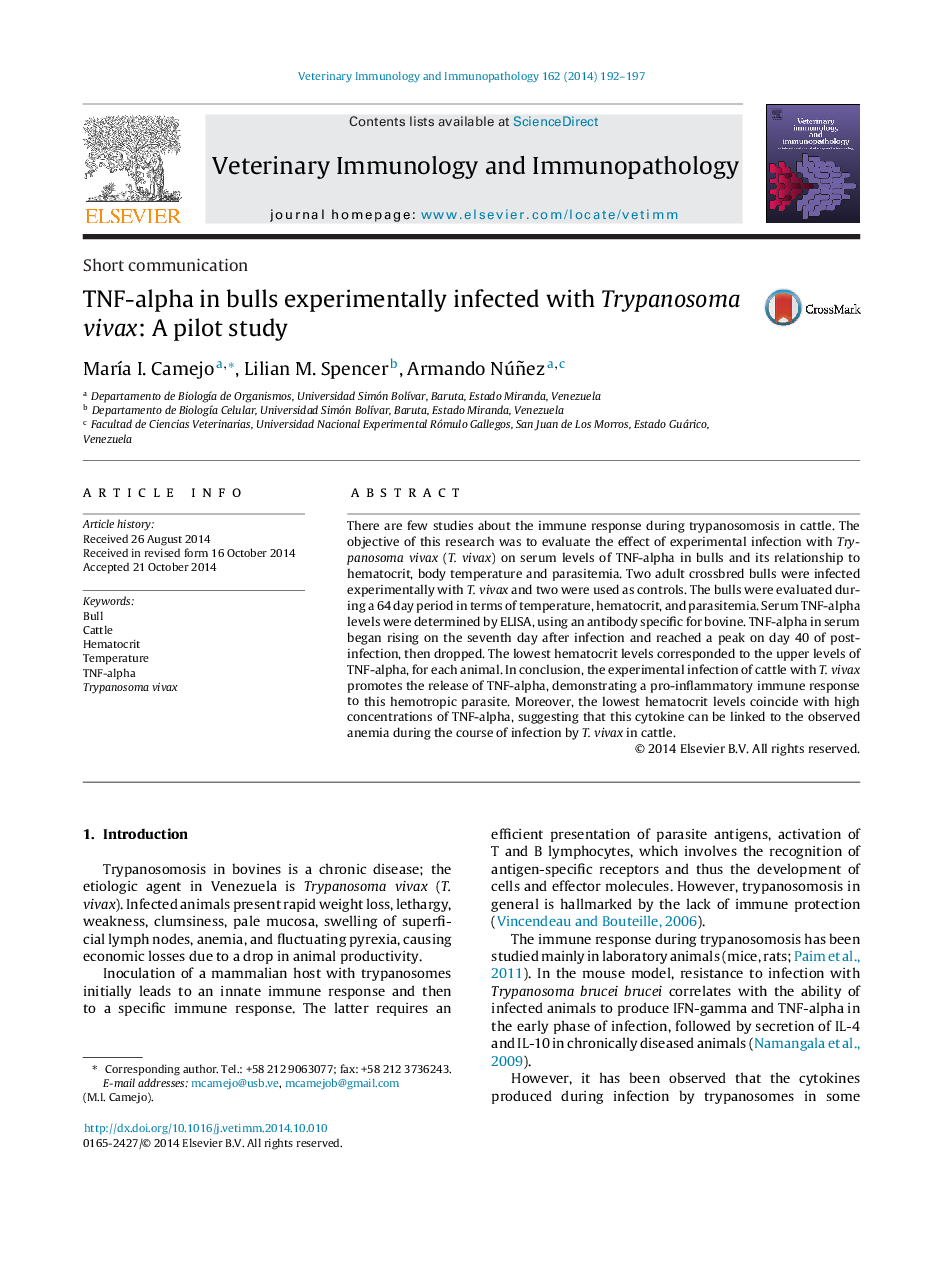| Article ID | Journal | Published Year | Pages | File Type |
|---|---|---|---|---|
| 2461494 | Veterinary Immunology and Immunopathology | 2014 | 6 Pages |
There are few studies about the immune response during trypanosomosis in cattle. The objective of this research was to evaluate the effect of experimental infection with Trypanosoma vivax (T. vivax) on serum levels of TNF-alpha in bulls and its relationship to hematocrit, body temperature and parasitemia. Two adult crossbred bulls were infected experimentally with T. vivax and two were used as controls. The bulls were evaluated during a 64 day period in terms of temperature, hematocrit, and parasitemia. Serum TNF-alpha levels were determined by ELISA, using an antibody specific for bovine. TNF-alpha in serum began rising on the seventh day after infection and reached a peak on day 40 of post-infection, then dropped. The lowest hematocrit levels corresponded to the upper levels of TNF-alpha, for each animal. In conclusion, the experimental infection of cattle with T. vivax promotes the release of TNF-alpha, demonstrating a pro-inflammatory immune response to this hemotropic parasite. Moreover, the lowest hematocrit levels coincide with high concentrations of TNF-alpha, suggesting that this cytokine can be linked to the observed anemia during the course of infection by T. vivax in cattle.
